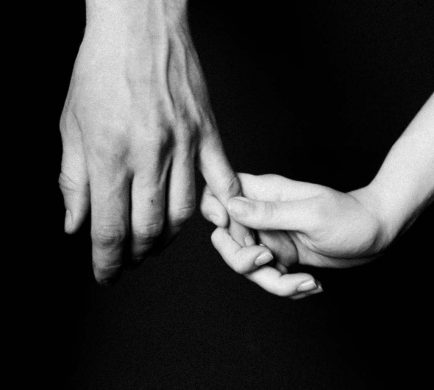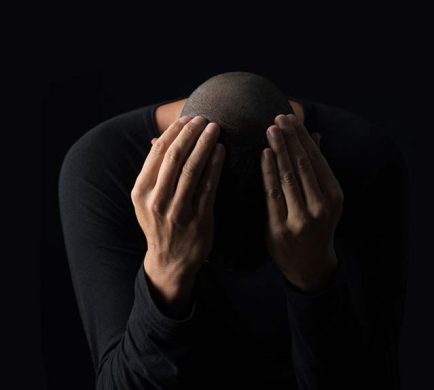By Heather Nardi
Have you ever experienced a time when you just knew something was off? Maybe you were driving home from work, and you had a feeling you should take a different road, so you did and later found out an accident occurred where you usually would have been driving. I am sure you can think of many examples when tuning in to your intuition—or ignoring it—produced a notable outcome. I shared some of my experiences with you, from meeting certain people to starting a networking group and attending a specific class. Your intuition is the compass guiding you toward greatness. Dr. Seymour Epstein said, “Intuition involves a sense of knowing without knowing how one knows.”
I felt connected to my growing intuition as I experienced my awakening. I learned to listen to, rather than ignore, the guidance of my intuition. This is the voice of your soul. It is not easy to listen to your innermost self. First, you need to recognize who you are, to discern clearly what is your own voice, untangled from the multitude of confusing voices inside you from others, past and present. Listening to yourself and your inner voice is a skill that can be acquired through self-reflection, meditation, and self-knowledge.
It does take courage to trust yourself and rely on your own instincts. As a culture, we have learned that we should look at things logically. There seems to be a high value placed on logic or reasoning. We need to use both our heads and heart. This is listening to all aspects of ourselves, which help us gain a complete view of life.
Trusting and believing in your own intuition without needing to justify or defend it is part of becoming a person with your own opinions and ways of thinking. I came to this point as we traveled the path of Ellie’s, my daughter’s, mental illness. I began to be open to my intuition and followed what I felt was next with our journey.
Growing up, I was taught the power of thought, logic, and reasoning. Schools teach us the basics, but they neglect emotional intelligence. I don’t ever remember being taught about intuition or listening to my feelings. Instead of speaking up, I often suppressed what I felt in order to go along with others and blend in.
Ellie’s experience with stomachaches and headaches in elementary school, being diagnosed with opposition defiant disorder, and in middle school having a conversation brought up about her possibly experiencing dissociation are symptoms I believe came from the lack of connection to her knowing. As an intuitive young woman, she is a deep thinker and can be absorbed in her own world.
Everyday life felt pointless, dull, and boring, which showed up as depression. And anxiety showed up because she wasn’t connected to the now or present. She was focused on the “what ifs” and the future.
When she experienced a stomachache, she was told she was alright, but Ellie knew something was wrong. I listened to Ellie, but then I would try to fix what was causing her pain instead of allowing her to feel the pain and learn from the feeling. I should have let her share and express her feelings with no action but love from me. My mistake came from never letting her strengthen her intuition through personal experience.
Please talk with your child about events when they may have ignored their intuition and let them know how important it is to listen. Keeping kids focused on self-talk and feeling recognition will help them center their voice, reduce self-doubt, and maintain interpersonal boundaries. With our help, children learn that they have feelings that guide their behavior and that their feelings reflect their needs, wants, and beliefs.
When I began to share how I felt and used my intuition as a guide, it opened the space for Ellie to do the same. Start by shutting off your inner critic who needs to rationalize everything and just listen—without judgment. You must first be willing to hear the truth in your heart. Keep a journal or a dream journal, or start a synchronicity notebook to write down all your so-called coincidences. Start simply following your hunches and prepare to be amazed by where they lead you.
Life is a journey of self-discovery. Each day, we learn more about ourselves and how to navigate the world around us. When the world is full of opposing forces, it can be hard to do what we feel is right. Standing at the center of the spectrum requires that we remain acutely aware of both extremes of an idea, emotion, or experience and attuned to our needs.
In standing at the center, we will feel most comfortable with ourselves. The key is to be an attentive steward of our emotional and physical selves; this provides a stable foundation on which we can effectively navigate life’s challenges. Intuition will help us make choices that align with our morals and beliefs, even if those beliefs are contrary to society.
Ellie’s struggle with anxiety and depression meant there was a lot of darkness before the light of coming off prescription medication. Once she was able to find love and understanding of herself as a sensitive empath, she was open to self-discovery and healing. Being an empath is often considered a blessing and a curse, though I prefer to say “challenge” instead of “curse.” One of the challenges is that the depth of our feelings can develop physical and emotional symptoms. Many of us struggle with people-pleasing and poor boundaries. The blessing is empathizing deeply. We are very intuitive and skilled at reading people, circumstances, and situations more than others. We are renowned as natural healers, creatives, and deep thinkers.
Unless you know that you are a sensitive empath, you may find life to be challenging or even experience a mental health problem. Being a sensitive empath brings great awareness of the emotions of others, which can make us vulnerable to anxiety and depression. For highly sensitive children, too many emotional and physical stimuli can cause them to behave erratically and even develop behavioral problems. So, they are often medicated. This ongoing pressure to be “normal”—whatever that is—often leads to a culture of kids medicated for their “behaviors.” This is an example of how society sees some children as normal versus different. When we don’t understand their differences, it creates a much more significant problem. It causes a lack of self-acceptance that often continues into adulthood.
If you’re a sensitive empath, chances are you’ve had to hide your true self, which caused you to feel isolated and misunderstood. That’s why it’s important to spend time learning about what it means to be a sensitive empath. Don’t hide in a world of duality, where you pretend to be something you’re not. Instead, live in the present moment fully and be yourself. When you live in that place, you can teach your children to do the same.
Our society is filled with duality—good and evil, right and wrong, beautiful and ugly. But while this division exists in so many aspects of life, you can still find harmony and balance in your own life. I am someone who feels like I live in the in-between, a space between two contrasting conditions, creating a balance. My balance falls between the realms of spiritual/religious, mainstream/holistic, intuitive/logical, and strong/weak, to name a few. We live in a world of extremes. It can feel bold to live your life in the in-between. Some might think that this is the easy way out. I embrace this space by creating my own experiences based on my needs and intuition.
I no longer want to be the chameleon who mirrors other people’s actions or emotions. I strive for alignment with who I am and choose to create the world where I want to live. Embrace your in-betweenness! I believe in the importance of balancing mainstream and traditional medicine and found life-changing transformation in holistic or alternative modalities. I call myself a Catholic, and I also use spiritual practices that support me. No more being a chameleon, adjusting myself to be what others want me to be. I can choose how I show up and who I allow into my life. I believe in creating what is best for you. As I share our journey, I hope you take what feels right to you intuitively and leave the rest. Create your own healing journey.
Becoming aware of your personal power and choosing to be a healthy, sensitive empath has everything to do with how you perceive yourself and the world around you.







